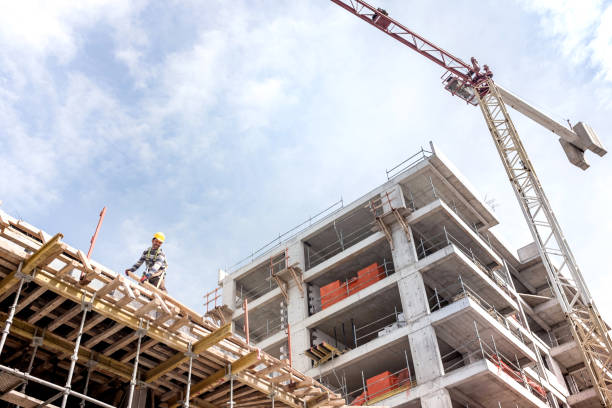How to find a construction job in Japan, for Japanese people?
Japan's construction industry offers numerous opportunities for those seeking employment in this dynamic sector. From urban development projects to infrastructure maintenance, the demand for skilled workers remains strong. This article will guide Japanese individuals through the process of finding and securing a construction job in their home country, highlighting available opportunities, salary expectations, and the advantages of working in this field.

What types of construction jobs are available in Japan?
The Japanese construction industry offers a diverse range of job opportunities. Some of the most common positions include:
-
General laborers
-
Carpenters
-
Electricians
-
Plumbers
-
Heavy equipment operators
-
Construction managers
-
Civil engineers
-
Architects
These roles cater to various skill levels and educational backgrounds, providing options for both entry-level workers and experienced professionals. Additionally, specialized positions in areas such as seismic engineering and sustainable building practices are becoming increasingly important in Japan’s construction landscape.
How can I find construction job listings in Japan?
There are several effective ways to search for construction jobs in Japan:
-
Online job boards: Websites like Indeed, Daijob, and GaijinPot often list construction-related positions.
-
Industry-specific job sites: Platforms like Kensetsu Navi focus exclusively on construction jobs.
-
Company websites: Large construction firms often post job openings directly on their career pages.
-
Recruitment agencies: Many agencies specialize in construction placements and can help match you with suitable positions.
-
Networking: Attend industry events, join professional associations, and leverage personal connections to learn about job opportunities.
-
Local employment offices: Hello Work offices, run by the government, can provide information on available construction jobs in your area.
What qualifications are needed for construction jobs in Japan?
The qualifications required for construction jobs in Japan vary depending on the position and level of responsibility. Some common requirements include:
-
Educational background: A high school diploma is often sufficient for entry-level positions, while managerial or engineering roles may require a university degree.
-
Technical skills: Proficiency in specific trades or tools relevant to the job.
-
Certifications: Many roles require specific licenses or certifications, such as the Kensetsu Ginou Shikaku (Construction Skills Qualification).
-
Safety training: Completion of safety courses, such as the Roudou Anzen Eisei Kyouiku (Labor Safety and Health Education).
-
Physical fitness: Many construction jobs require good physical condition and stamina.
-
Language skills: While not always mandatory, proficiency in Japanese is highly advantageous, especially for communication-intensive roles.
What are the typical construction salaries in Japan?
Construction salaries in Japan can vary widely based on factors such as experience, job role, and location. Here’s a general overview of salary ranges for different positions:
| Position | Entry-Level Salary (Annual) | Experienced Salary (Annual) |
|---|---|---|
| General Laborer | ¥2,500,000 - ¥3,500,000 | ¥3,500,000 - ¥5,000,000 |
| Skilled Tradesperson | ¥3,000,000 - ¥4,500,000 | ¥4,500,000 - ¥6,500,000 |
| Construction Manager | ¥4,500,000 - ¥6,000,000 | ¥6,000,000 - ¥10,000,000 |
| Civil Engineer | ¥3,500,000 - ¥5,000,000 | ¥5,000,000 - ¥8,000,000 |
| Architect | ¥3,500,000 - ¥5,000,000 | ¥5,000,000 - ¥10,000,000 |
Prices, rates, or cost estimates mentioned in this article are based on the latest available information but may change over time. Independent research is advised before making financial decisions.
What are the advantages of working in construction in Japan?
Working in the construction industry in Japan offers several advantages:
-
Job stability: The ongoing need for infrastructure development and maintenance ensures a steady demand for construction workers.
-
Career progression: Many companies offer training programs and opportunities for advancement.
-
Competitive salaries: Skilled workers and professionals can earn attractive wages, especially in urban areas.
-
Contribution to society: Construction work plays a vital role in shaping Japan’s built environment and improving quality of life.
-
Diverse projects: From traditional wooden structures to cutting-edge skyscrapers, the variety of projects offers diverse experiences.
-
Technological advancements: Japan’s construction industry often employs innovative technologies, providing opportunities to work with state-of-the-art equipment and methods.
How can I prepare for a construction job interview in Japan?
To increase your chances of success in a construction job interview in Japan, consider the following tips:
-
Research the company and its projects thoroughly.
-
Prepare examples of your relevant skills and experiences.
-
Familiarize yourself with Japanese business etiquette and interview customs.
-
Dress appropriately – usually in business attire, even for hands-on roles.
-
Bring copies of your resume, certifications, and any relevant portfolios.
-
Practice answering common interview questions in Japanese, if possible.
-
Demonstrate your enthusiasm for the construction industry and the specific role.
-
Be prepared to discuss your long-term career goals and how they align with the company’s objectives.
By following these guidelines and leveraging the various job search methods available, Japanese individuals can successfully navigate the process of finding and securing a construction job in Japan. The industry offers a range of opportunities for both newcomers and experienced professionals, with competitive salaries and the chance to contribute to the country’s ongoing development and innovation in the built environment.






